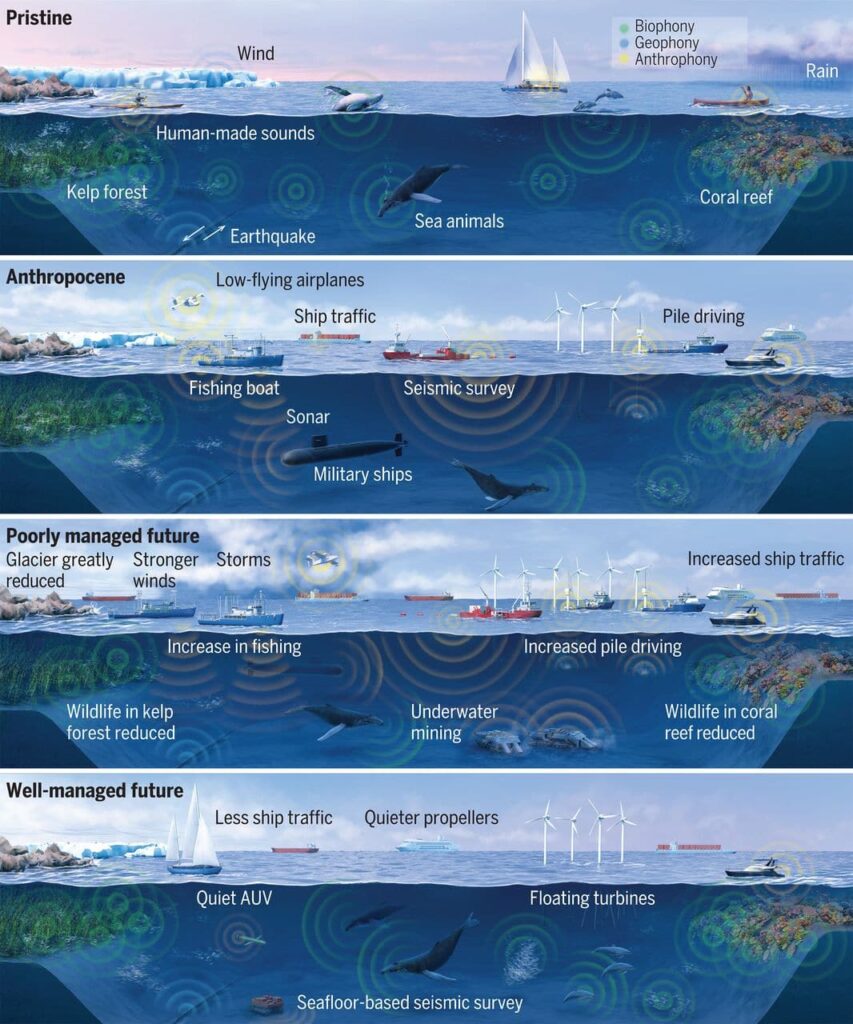Wind turbines, shipping vessels and climate change are just some of the ways human beings are causing a commotion in the ocean. As man-made noise pollution increases, the ocean’s natural soundscape is being drowned out, causing harm to aquatic species.
According to a report published this month in the Science Journal, man-made sounds have become so loud that marine species are quite literally struggling to hear one another. Since the Industrial Revolution, anthropogenic noise has steadily increased with seismic surveys, marine traffic and drilling being some of the common causes of the pollution. In fact, over the past 50 years the amount of low frequency noise detected along major shipping routes in the ocean has seen a 32 fold increase.
The contribution of noise pollution to the declining status and health of ocean ecosystems is likely substantial
“The soundscape of the Anthropocene ocean”
From jellyfish to dolphins, all animals who call the ocean are seeing negative behavioural and physiological impacts from the disturbances. Animals rely on sound for communication, foraging and hunting, as well as reproduction. In terms of breeding, some species actually use sound as a “navigational cue to locate suitable settlement habitats” for laying larvae. However, this man-made cacophony is making biologically-produced sounds almost inaudible and marine species are struggling to engage in activities that are key for their survival.
What can be done to help?
As humans begin to develop the blue economy, there will be a rise in shipping, coastal development and a likely growth of the deep-sea mining industry. Add this to the worsening climate crisis and the ocean’s soundscape is predicted to change once again. However, scientists believe adopting international policies will ensure sustainable use of the ocean. It was proposed in the report that floating windfarms, using soundproof bubble curtains during their construction, as well as enforcing lower speed limits for marine vessels and diverting traffic away from biologically sensitive areas could reduce disturbances.
>> READ ALSO: Protecting marine life of the Mediterranean from man-made noise
>> READ ALSO: How the Prince Albert II Foundation is tackling noise pollution











